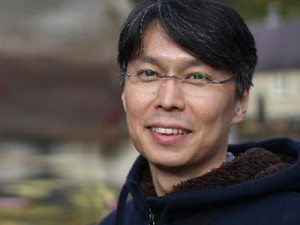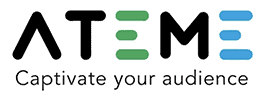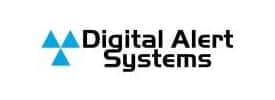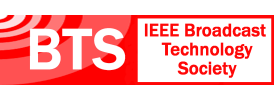- About
- Members
- Sponsors
- Subcommittees
- Technical Documents
- News
- Events
- Spotlight ATSC 3.0
- Contact Us
- Member Login
- Member Meetings
- Advanced Search
Search Site
Member Links
- About
- Members
- Sponsors
- Subcommittees
- Technical Documents
- News
- Events
- Spotlight ATSC 3.0
- Contact Us
- Member Login
- Member Meetings
- Advanced Search
Someone You Should Know: Woo-Suk Ko, Ph.D.
Posted on December 7, 2015 in ATSC News
Woo-Suk Ko, Ph.D.
Principal Research Engineer, LG Electronics
 Woo-Suk Ko, Principal Research Engineer at LG Electronics in Seoul, is an active participant in the TG3 Technology Group developing ATSC 3.0, and especially its S32-2 and S32-3 Specialist Ad Hoc Groups.
Woo-Suk Ko, Principal Research Engineer at LG Electronics in Seoul, is an active participant in the TG3 Technology Group developing ATSC 3.0, and especially its S32-2 and S32-3 Specialist Ad Hoc Groups.
His first involvement in ATSC was attending the Next-Generation Broadcast Television Symposium in 2011, which was the first time for him to meet a lot of ATSC members. It was timely because that was the year ATSC kicked off the development of the next-gen ATSC 3.0 suite of standards.
Dr. Ko has been deeply involved in developing key pieces of the physical layer system for ATSC 3.0. “At LG, our team had been working for some time on finding best technologies to be used in future U.S. broadcasting. Based on that work, we submitted a full system proposal for ATSC 3.0, which was jointly made by LG, Zenith and our partner GatesAir.
“I am proud that a significant part of that proposal was adopted by TG3, together with other important pieces from other proponents, as baseline technologies in the ATSC 3.0 Phy Layer Candidate Standard,” says Ko.
Expand Your Vision
In order to maximize the benefits of the ATSC for his company and for everyone involved with the ATSC, Dr. Ko believes that branching out, face time with other contributors and expanding your own vision through theirs are keys to success.
“ATSC allows you to learn from the visions of lots of people working a variety of broadcast business areas. You can also communicate with various proponents concerning their technical ideas and innovative thinking with our common goal of the best ATSC 3.0 system,” Ko says.
“In-person ATSC meetings make the dialog alive and the relationship dynamic. This helps all participants make important business decisions based on collective insights.”
Adaptation and growth
As years go by, technology evolves. As technology evolves, companies are generally trying to stay one step ahead or keep pace with the pack, notes Dr. Ko. Although LG/Zenith, has been heavily involved since ATSC 1.0, he first found it “somewhat challenging to adapt to the ATSC society.”
“At first,” Ko says, “I was not familiar with the way of doing things within TG3. But with the help of many members, I was gradually able to integrate into the process. I deeply appreciate everyone who helped me feel welcome.
“Various participants saw various outcomes through the ATSC 3.0 standardization. The most impressive thing was that almost every broadcaster wanted to have flexibility to cope with every kind of use case they may encounter in the future. I have been surrounded by the enthusiastic members who were collaborating and/or competing with each other, and it is a really exciting time of my life to collaborate with them to get a common goal,” he concludes.
Getting to Know Ko
While he has been involved with television and communications projects in both Korea and the United States, Dr. Ko is very much a family man outside of his industry work. Growing up he liked to play soccer, read books and listen to classical music. Now he shares his passions with his children.
“My son is the sixth grade and my daughter is in third grade. We have shared baseball, soccer and music. Recently my children are interested in solving cubes of various shapes like Megaminx, and I’m having fun finding solutions with them,” says Ko.
As much as he loves his job and work with ATSC, Ko says of his wife and family, “Our children are the greatest pleasure in my life. I am the youngest son among four children. I had been loved so much by our parents, and it’s my turn to do the same to our children.”
Posted in ATSC News
News Categories
News Archives
Subscribe
Subscribe to The Standard, our monthly newsletter. Learn More
Join ATSC
ATSC is a membership organization with both voting and observer categories. Voting members include corporations, nonprofit organizations, and government entities, and they participate actively in the work of ATSC. Observers are individuals or entities not eligible to be a voting member.
Subscribe to our Newsletter
Subscribe to The Standard, our monthly newsletter, to stay up-to-date with ATSC news and events around the world.
Site Links
Contact Us
Advanced Television Systems Committee, Inc.
1300 I Street NW, Suite 400E
Washington, DC 20005
Do you have questions about ATSC?
About ATSC
The Advanced Television Systems Committee, Inc., is an international, non-profit organization developing voluntary standards and recommended practices for digital terrestrial broadcasting. ATSC member organizations represent the broadcast, broadcast equipment, motion picture, consumer electronics, computer, cable, satellite, and semiconductor industries. ATSC also develops digital terrestrial broadcasting implementation strategies and supports educational activities on ATSC standards.
© 2025 ATSC





































